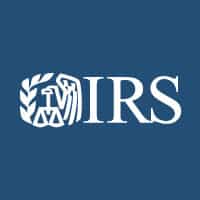 IRS correspondence audits primarily regard issues that are easy resolved through mail and do not require significant investigation. Typically, correspondence audits are for missing documents in your tax return that IRS computers have attempted to find. These usually include W-2’s and 1099 income items or interest expense items. Returns selected for correspondence audits primarily deal with simplistic verification issues such as interest, taxes, charitable contributions, medical expenses, taxes paid, other miscellaneous deductions or issues that would not be appropriate for the more detailed audit levels. They can also include smaller categories that the IRS is simply trying to verify.
IRS correspondence audits primarily regard issues that are easy resolved through mail and do not require significant investigation. Typically, correspondence audits are for missing documents in your tax return that IRS computers have attempted to find. These usually include W-2’s and 1099 income items or interest expense items. Returns selected for correspondence audits primarily deal with simplistic verification issues such as interest, taxes, charitable contributions, medical expenses, taxes paid, other miscellaneous deductions or issues that would not be appropriate for the more detailed audit levels. They can also include smaller categories that the IRS is simply trying to verify.
Once IRS personnel have determined the issue for examination, a computer generated notice will be sent to the taxpayer with a thirty (30) day deadline to respond. Taxpayer responses are sent to an examiner for review to determine their sufficiency. This type of audit is usually handled through the mail with the correct documentation. If can not justify your deductions or income, the audit may be expanded.
Our office frequently guides taxpayers through the correspondence audit process and assists them in preparing a response to the IRS Compliance Center. Having experienced counsel prepare your response coupled with accurate documentation will greatly reduce your chances for an examination change. In addition, we can help you avoid providing excessive information, which may expand the scope of the audit.
A correspondence audit is relatively limited in scope. An agent typically conducts the audit using letters and phone calls to work with the officers or a representative of the organization. A correspondence audit can expand and become an in-person (field) audit, particularly if the issues grow more complex or the organization does not respond.
If you have any questions or if we can further assist you, please contact our San Diego IRS audit attorneys today.
For more information, please see:
